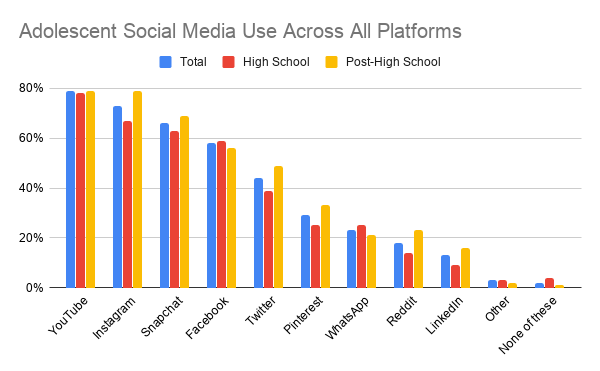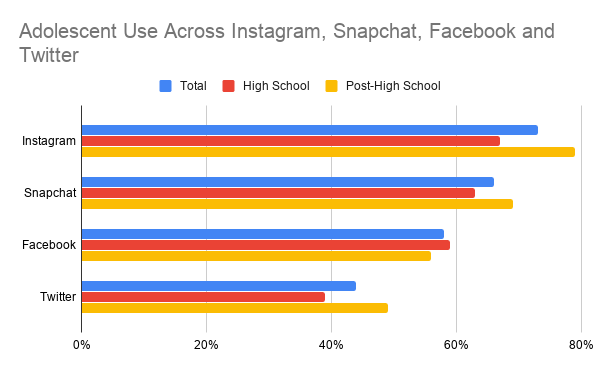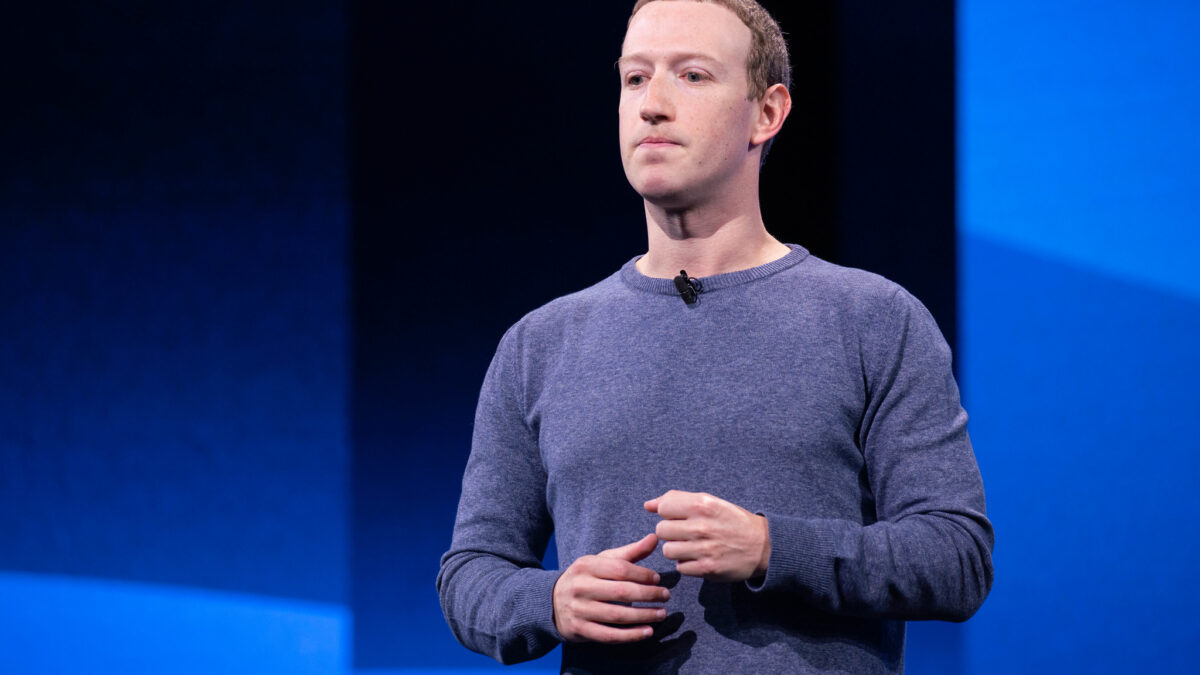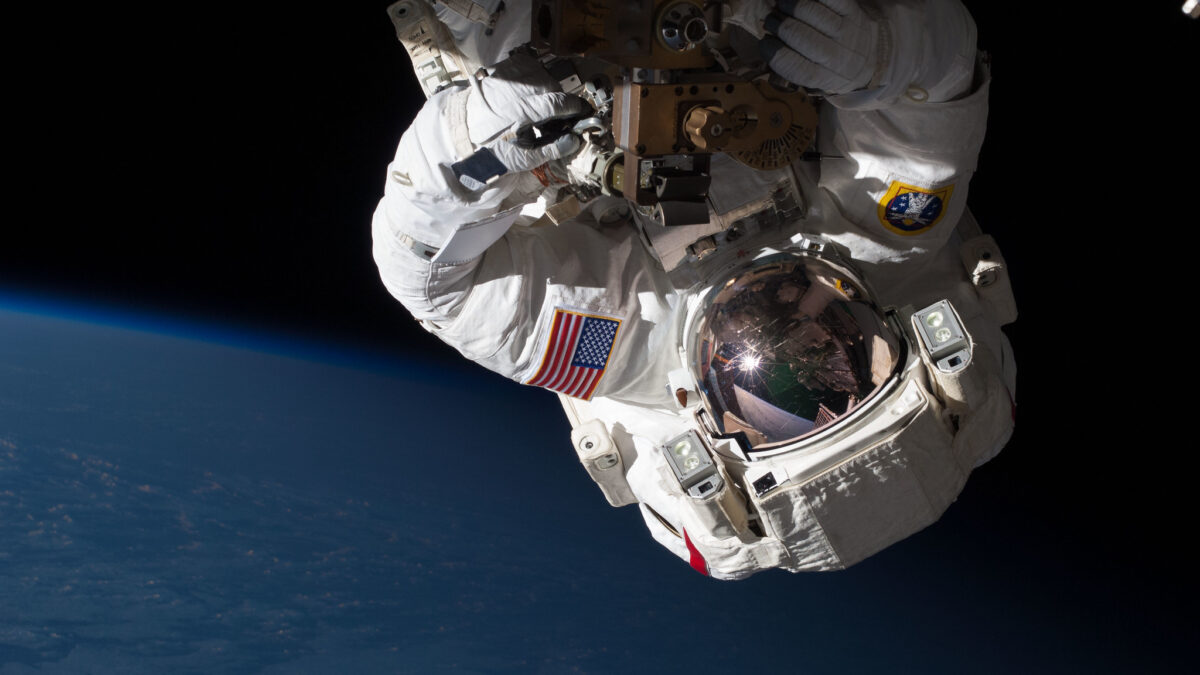A poll conducted by The Federalist with the Young America’s Foundation and released Tuesday reveals more young people are using image-based social networking sites Instagram and Snapchat over Facebook and Twitter.
According to a survey conducted April 24-27 of 1,600 high school and post-secondary students between the ages of 13 and 22, YouTube reigned as the dominating platform with 79 percent of young people surveyed reporting traffic on the site.

Meanwhile, adolescent use of the picture-focused platforms Instagram and Snapchat far outspaced other popular websites Facebook and Twitter, which have become increasingly political and polarizing. Seventy-three percent of total students reported using Instagram and 66 percent reported using Snapchat, while only 58 percent said they used Facebook and less than half, 44 percent, said they were active on Twitter.
Post-secondary students reported having a greater presence on each site except for Facebook, where 59 percent of high school students said they were active compared to just 56 percent of post-high school students.

The poll results come amid the rapid growth in social media in American life as tech giants in Silicon Valley continue to see heightened power and influence while government regulators struggle to keep up.
As teens report high usage of social media, many experts have pointed out that increased use has coincided with a rise in mental health disorders. The online platforms are linked with the high rates of anxiety and depression reported in teens.
Researchers at the University of Pennsylvania published a study in November 2018 identifying a causal link between using Facebook, Snapchat, and Instagram by monitoring for three weeks the mood and well-being of 143 participants divided into separate groups. Those in the control group maintained a typical social media presence while those in the experimental group capped their time on each platform to just 10 minutes on each every day. The researchers led by psychologist Melissa Hunt then examined participants’ levels of fear of missing out, anxiety, depression, and loneliness.
“Here’s the bottom line,” Hunt told Penn Today, discussing the results. “Using less social media than you normally would leads to significant decreases in both depression and loneliness. These effects are particularly pronounced for folks who were more depressed when they came into the study.”
Social media is also addicting, which has caught the attention of Missouri Republican Sen. Josh Hawley. He proposed legislation last year to ban certain social media practices employed by tech companies that he claims is intended to hook children on certain websites.
The Social Media Addiction Reduction Technology (SMART) Act would prohibit social media companies from using infinite scrolling, autoplay, and “achievements” such as “Snapstreak” on Snapchat that unlock badges based on consecutive pictures exchanged with another user.









